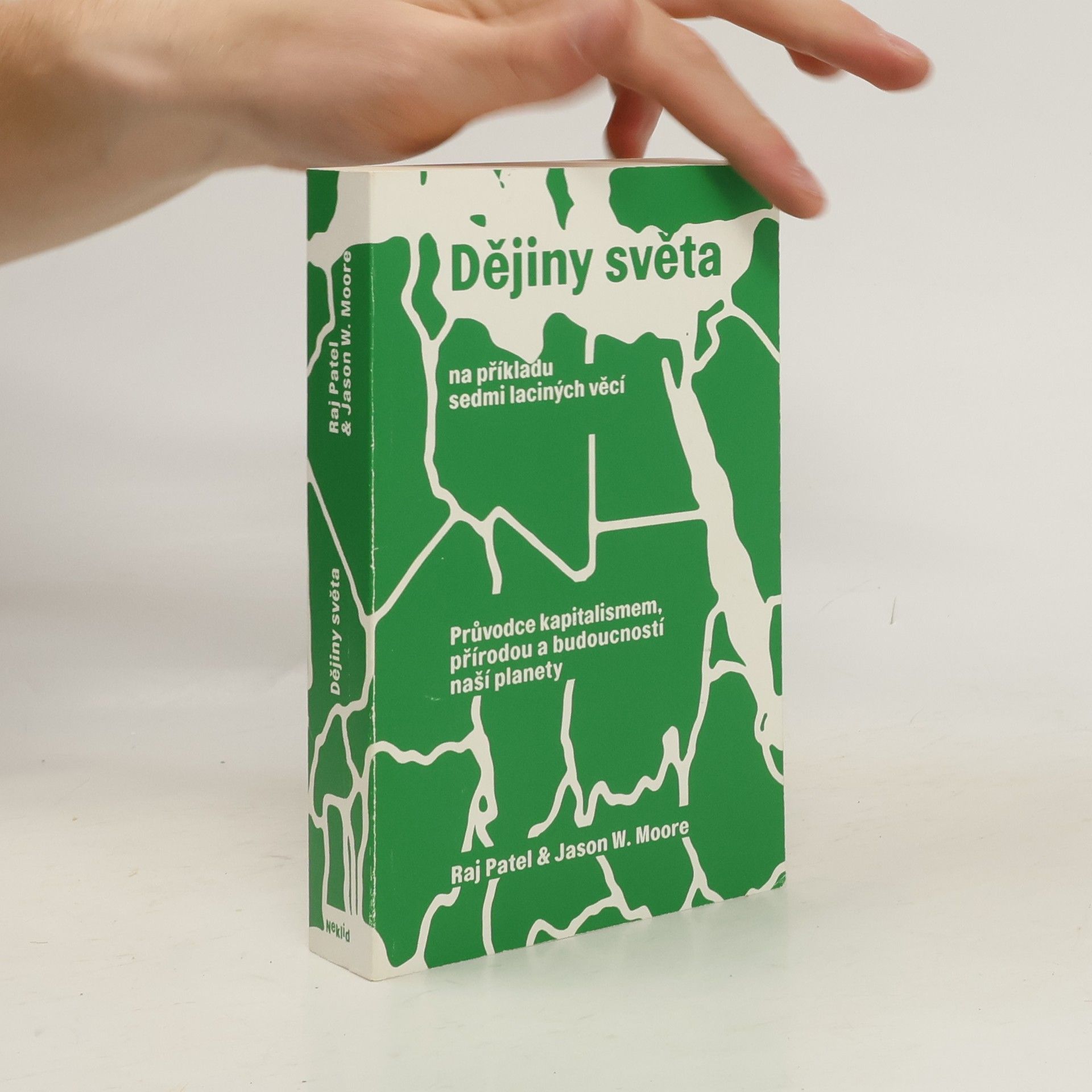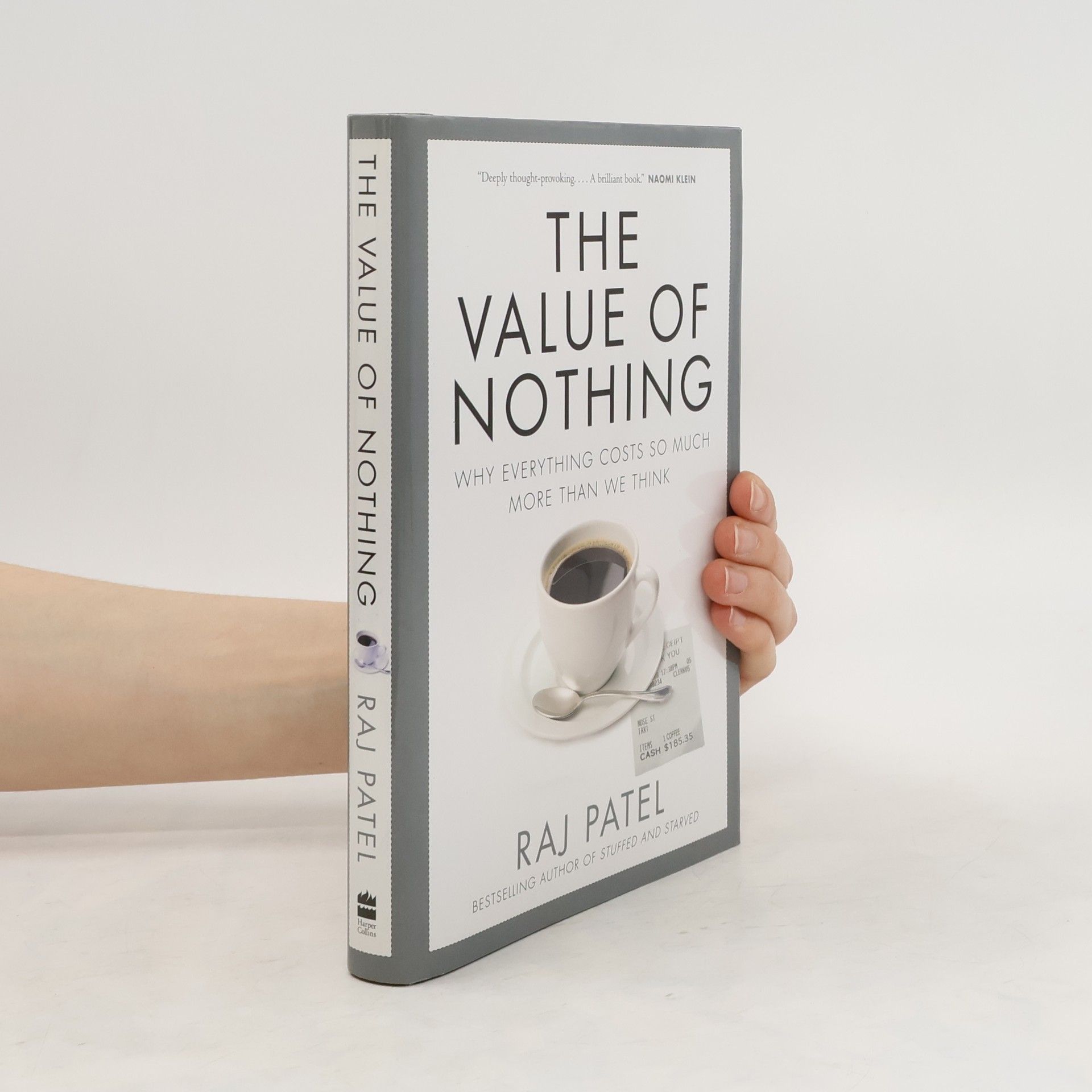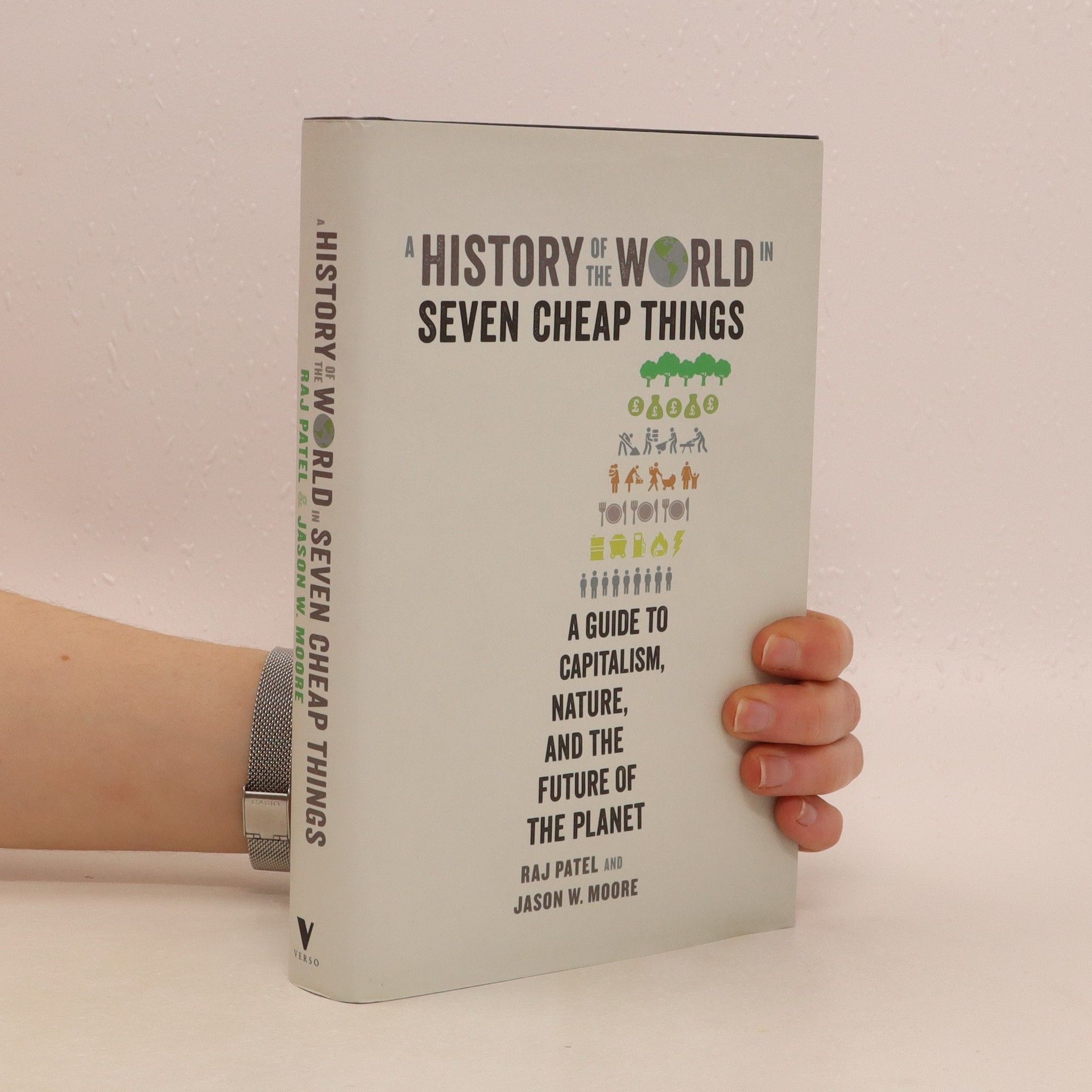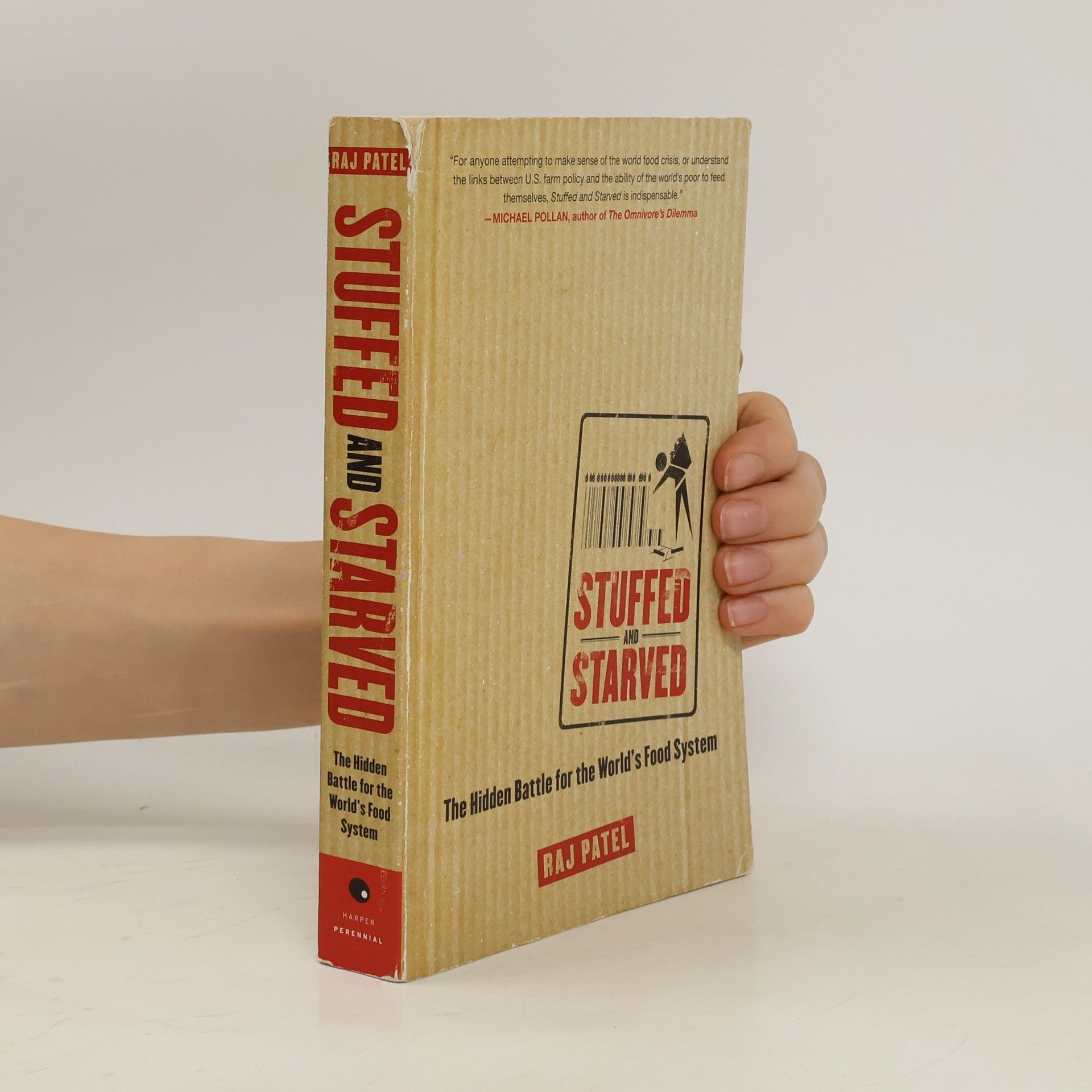The bestselling and groundbreaking book for readers of Michael Pollan's The Omnivore's Dilemma and Eric Schlosser's Fast Food Nation At no other time in history have people in wealthy countries had so much choice and so much abundance in what to eat. But in countries locked in a vicious cycle of poverty, there is no choice. There is no food. Raj Patel shows us that these two extremes are deeply and inextricably linked. In Stuffed and Starved , he asks us to think about the way our food comes to us, to understand how what we buy directly affects the world’s poorest citizens and to recognize how we ourselves are poisoned by our choices. Patel gives us a broad view of the global food industry and the all-encompassing machine composed of organizations such as the World Bank and the WTO, corporate lobbyists, government agencies and the all-powerful distribution networks. He also traces the specific journey of coffee, soy and high-fructose corn syrup, from the fields to the kitchens of fast-food restaurants. Stuffed and Starved is a shocking and timely story of commercial greed, desperate hunger and inspirational alternatives to the current food system.
Raj Patel Livres
Raj Patel est un écrivain, activiste et universitaire reconnu pour son examen critique des systèmes économiques mondiaux. Ayant expérimenté de première main les impacts d'institutions telles que la Banque Mondiale et l'OMC, son travail explore souvent les thèmes de l'inégalité, de la justice économique et des conséquences sociétales du commerce mondial. La perspective unique de Patel, forgée par l'activisme direct et des recherches approfondies, offre aux lecteurs un regard captivant et souvent stimulant sur les forces qui façonnent notre monde.







Nature, money, work, care, food, energy, and lives- these are the seven things that have made our world and will shape its future. In making these things cheap, modern commerce has transformed, governed, and devastated Earth. In A History of the World in Seven Cheap Things, Raj Patel and Jason W. Moore present a new approach to analysing today's planetary emergencies. Bringing the latest ecological research together with histories of colonialism, indigenous struggles, slave revolts, and other rebellions and uprisings, Patel and Moore demonstrate that throughout history, crises have always prompted fresh strategies to make the world cheap and safe for capitalism. At a time of crisis in all seven cheap things, innovative and systemic thinking is urgently required. This book proposes a radical new way of understanding - and reclaiming - the planet in the twenty-first century.
As retirement funds shrink, savings disappear and houses are foreclosed on, now is a good time to ask a question for which every human civilization has had an answer: why do things cost what they do? The Value of Nothing tracks down the reasons through history, philosophy, neuroscience and sociology, showing why prices are always at odds with the true value of the things that matter most to us. Damien Hirst's diamond-encrusted skull sold for a record $100 million at auction. But if we account for the possibility that blood diamonds were used (as many suspect), the human cost is even greater. A Big Mac might seem like the best deal in these economic times, but after analyzing the energy to produce each burger, from field to Happy Meal, Patel argues the real price tag is a whopping $200. But it is easiest to see the gap between price and value by looking at things that are so-called free. Examining everything from Google to TV, from love to thoughts, The Value of Nothing reveals the hidden social consequences of our global culture of "freedom."
Focusing on acoustic design, this guide offers an approachable and well-illustrated resource for architects, interior designers, and acoustic professionals. It simplifies the complexities of architectural acoustics and technology, making it accessible for users who may struggle with more technical texts. The book stands out in a crowded market by combining authoritative content with a user-friendly format.
Wir sind in einem Zeitalter angekommen, in dem der Mensch verschwinden könnte – und mit ihm die Welt, die er so gnadenlos ausbeutet. Denn was ist heute für uns nicht billig und schnell zu haben – auf Kosten der vielen Menschen, die weniger privilegiert sind als wir? Wir ruinieren unsere Erde, wenn wir nicht schleunigst kooperative Wege des Zusammenlebens und Wirtschaftens finden und den westlichen Raubtierkapitalismus bändigen. Das ist die Botschaft des Ökonomen Raj Patel und des Historikers Jason W. Moore. In sieben Kapiteln widmen sie sich jeweils einem Aspekt dieser Entwertung der Welt: Natur wird ebenso entwertet wie Geld, Arbeit, Pflege, Nahrung, Energie und Leben. So eindrücklich wie umfassend schildern sie, dass die Krisen unserer Zeit in Wirklichkeit eine einzige Krise sind und dass diese einen langen Vorlauf in der Geschichte hat. Wenn heute billige Arbeitskräfte billige Chlorhühnchen zu billigen Chickenwings verarbeiten, dann ist das, wie sie exemplarisch schildern, ein zerstörerisches Wirtschaftsprinzip, das sich über Jahrhunderte herausgebildet hat. Patel und Moore führen vor Augen, dass es an der Zeit ist, diese Entwicklung zu durchbrechen und unser Wirtschafts- und Sozialsystem anders zu denken, wenn wir unsere Welt verstehen und damit bewahren wollen.
Dějiny světa na příkladu sedmi laciných věcí: Průvodce kapitalismem, přírodou a budoucností naší planety
- 360pages
- 13 heures de lecture
Příroda, peníze, práce, péče, potraviny, energie a životy: na těchto sedmi věcích stojí svět, ve kterém žijeme, a také jeho budoucnost. Moderní obchod z nich udělal pouhé laciné artikly, a tím proměnil, ovládl a zdevastoval Zemi. V Historii světa v sedmi laciných věcech rozvíjejí autoři Raj Patel a Jason W. Moore nový přístup k pochopení současných planetárních krizí. Spojují dohromady nejnovějšího výzkumu v ekologii s historií kolonialismu, dějinami bojů původních obyvatel, vzpour otroků a dalších povstání a bouří a ukazují, že v minulosti vedly krize vždy k vynálezům nových strategií, jak svět ještě více zlacnit a usnadnit přežití kapitalismu. V čase, kdy se v krizi ocitá všech sedm laciných věcí, je urgentně třeba nového a systémového myšlení. Tato kniha přináší radikálně nový způsob pochopení - a znovuzískání - naší planety v turbulentním 21. století.